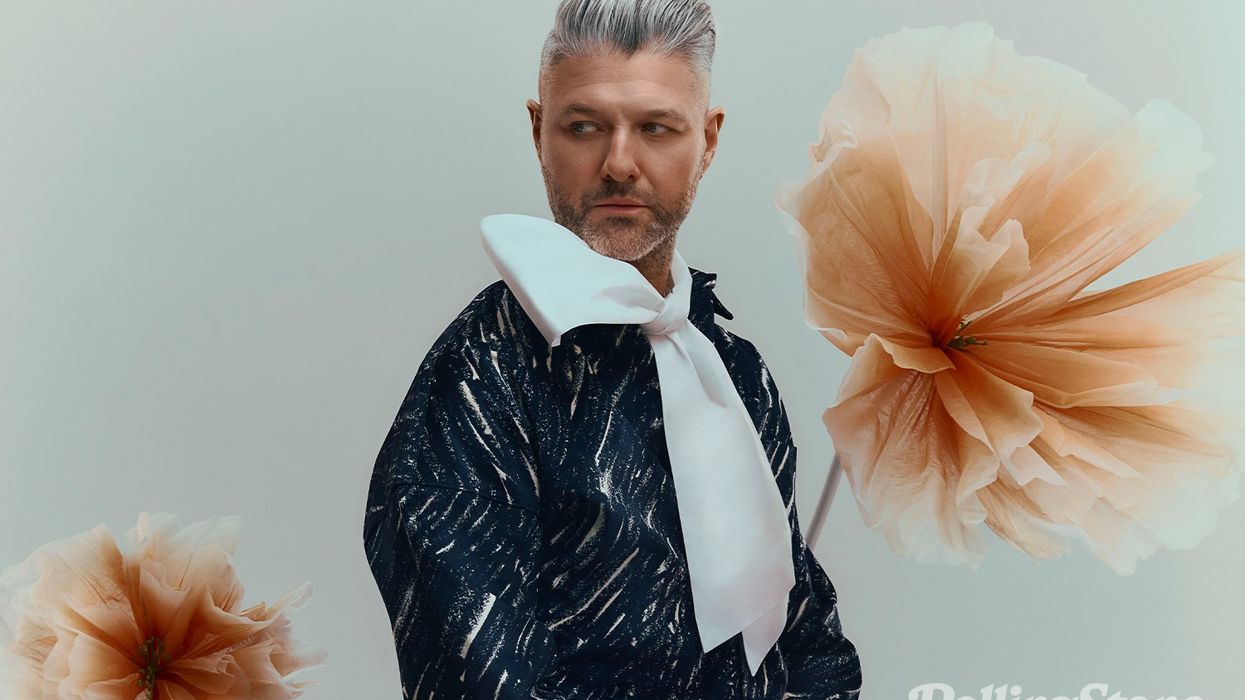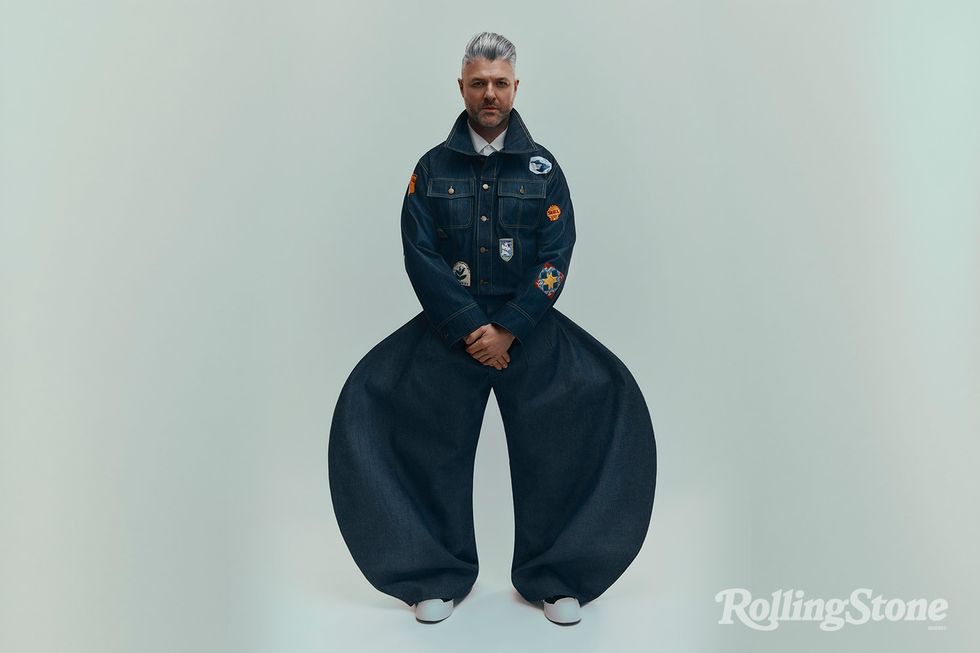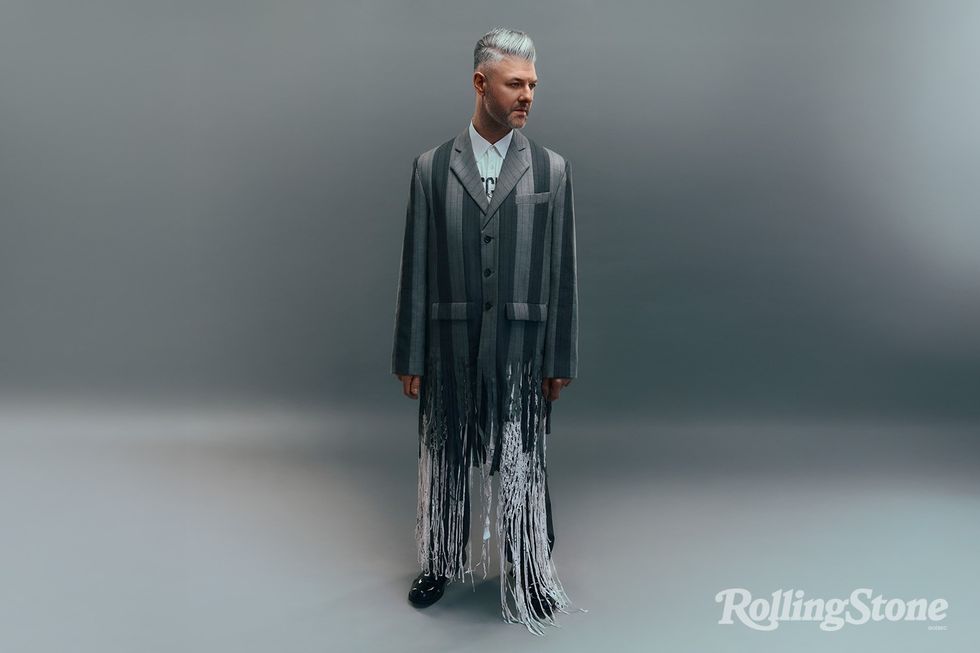The idea of artists needing a “career reboot” often has as much to do with the petulant impatience of content-saturated fans than the actual situation of the artist in question. But in the case of Sia, the urgency of a course correction is hard to deny. Sia broke out from the ranks of top-level songwriters-for-hire in 2014 with the self-emptying party-kamikaze ginormity of “Chandelier.” Her 2017 album This is Acting was a concept record of sorts that repurposed songs she’d originally written with singers like Adele and Rihanna in mind, of which the RiRi reject “Cheap Thrills” ended up going Number One. But she struggled to find her next act. There was a Christmas album in 2018, and a genre-melting side-band with Diplo and the British singer Labrinth called LSD. Her next project was the 2021 movie musical Music, which was roundly excoriated for casting Maddie Ziegler (the neurotypical actor and dancer from the memorable “Chandelier” video) to play a teen with autism.
That movie’s soundtrack album, however, showed that Sia’s songcraft hadn’t fallen beneath a baseline quality level, even when it rendered music as forgettable as the film was regrettable. Her first album in three years, Reasonable Woman, is also solid, a return to the aesthetic mean that works more than it doesn’t. None of the singles released from it so far have been hits, but they’re all resolutely competent examples of Sia’s knack for sweeping, feelings-heavy glitz. “Gimme Love” is a titanically massive plea with a grand, martial beat; Chaka Khan appears on the blast of R&B triumphalism called ”Immortal Queen”; Kylie Minogue brings her usual down-to-earth-diva warmth to the lithe dance-pop of “Dance Alone”; and “Fame Won’t Love You,” a big-swinging synth-pop tune about career jitters, pairs Sia with Paris Hilton to come up with the most memorably catchy song on the album.
Sia’s lyrical safety zone remains motivational anthems like “Little Wing” and “Champion,” the latter of which features verses from Tierra Whack and lesser-known rappers Jimmy Jolliff and Kaliii. Those sentiments come with a spritz of quasi-autobiographical pathos here: “It’s a hard life/But I’m still here/After all these years/I am stronger than I thought I was,” she informs us during the glassy, gossamer opening of “Go On.”
Featuring several assists from Greg Kurstin and Jesse Shaktin, the longtime collaborators who helped her make “Chandelier,” Reasonable Woman often feels like it might’ve been a passable follow-up to This Is Acting in 2018 or so. Back then, Sia’s all-in approach to songwriting helped add an intensity to the Top 40. But things were already starting to change even at her peak, and in this decade, onetime peers like Taylor, Lorde, and Lana Del Rey have steadily shifted the tone of pop towards detail, artsy intimacy, and a sense of personal shadow-play.
The most striking song on the album, the spartan piano ballad “I Forgive You,” is closer to that mold, a sort of scorched-earth version of a Sia-penned mega-smash like Rihanna’s “Diamonds.” It’s also a bracing showcase for her ability to leap from her dusky midrange to an Olympian upper register, while sounding at once downcast, resilient, and heroically reborn. It’s a reminder that even when the zeitgeist has shifted, and the songs won’t likely be vaulting up the streaming charts, you can still stand tough as titanium.







 Coat (polyester and wool), shirt (silk), Dries Van Noten, SSENSE.com / Flower (silk), M&S Schmalberg
Coat (polyester and wool), shirt (silk), Dries Van Noten, SSENSE.com / Flower (silk), M&S Schmalberg
 Blouson (denim and hand embroidered patches), WJ Crosson / Shit (polyester), Homme plissé Issey Miyake, Holt Renfrew/Pants from personal collection/ Shoes(canvas), Marni
Blouson (denim and hand embroidered patches), WJ Crosson / Shit (polyester), Homme plissé Issey Miyake, Holt Renfrew/Pants from personal collection/ Shoes(canvas), Marni Jacket and pants (virgin wool), shirt (acrylic coated cotton), Moschino / Shoes from Pierre Lapointe's personal collection
Jacket and pants (virgin wool), shirt (acrylic coated cotton), Moschino / Shoes from Pierre Lapointe's personal collection








